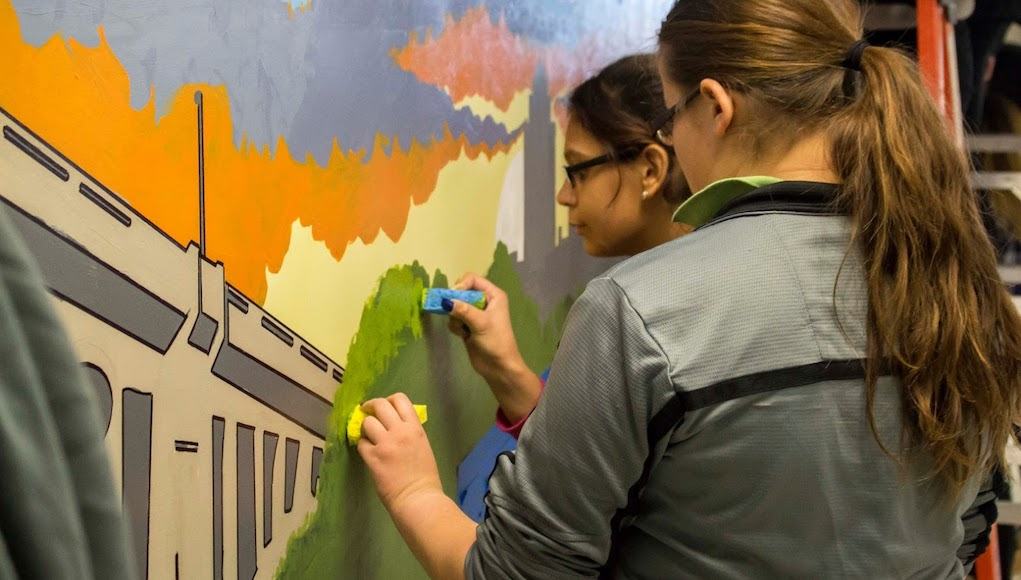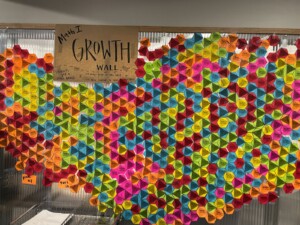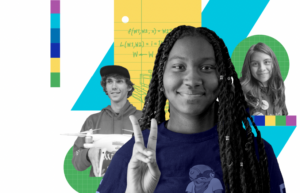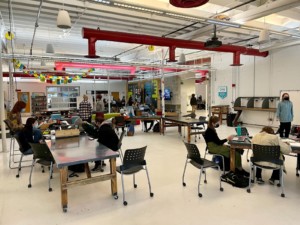Building 21: Designing a Network for Competency-Based Education

By Chip Linehan
Our current system’s narrow definitions of student success value content knowledge over the skills and mindsets needed for students to thrive in today’s rapidly changing world. On the other hand, next-generation graduation requirements that measure and credit a broader and deeper array of habits, mindsets, skills and experiences have the potential to redefine readiness for students and prepare them for their journey through the wayfinding decade of learning and working that follows high school.
Our vision at Building 21 is to create a deep network of like-minded schools and districts that seek to fundamentally rethink high school graduation requirements to reflect the changing world around us, and to personalize individual pathways by bending the system to meet the strengths and interests of every learner. This network is built around:
- A common definition of success (Graduation Requirements)
- A standardized way of assessing learning and awarding credit (Competency-Based Learning Model)
- Problem-based/project-based instruction culminating in the authentic application of learning (Studio Model)
- A common set of tools and systems to manage teaching and learning (Systems)
Graduation Requirements
Inspired by the NextGen Learning Challenges MyWays Student Success Framework, we have developed a set of graduation requirements composed of academic and non-academic competencies, mindsets, skills, and experiences organized in the following four domains:
Each domain has sets of competencies or experiences that students are required to complete to earn credit and graduate from high school.
 Academic Competencies: ELA, Social Studies, Math Science, Visual Art, World Language, and Health
Academic Competencies: ELA, Social Studies, Math Science, Visual Art, World Language, and Health
Habits of Success Competencies: Personal Work Habits, Professionalism, Planning My Journey, and Building Networks
Next-Gen Essential Competencies: Project Quality, Presentation, Collaboration, and Written Communication in the Workplace
Wayfinding Experiences: A series of experiences necessary for students to reflect, document, and communicate their Wayfinding Journey.
Competency-Based Learning Model
The goal of competency-based education is to transform our education system from a time-based system to a learning-based system. Instead of awarding credits based on how much time students spend learning (verified by summative assessment), this model awards credits when students can prove they have mastered competencies—the skills, abilities and knowledge required in an area of study. Put simply, competency-based education is not about time—it’s about what you know and are able to do.

We’ve developed what we’re calling the Learning What Matters competency-based framework, which is a free and open-source structure that can be used to replace time-based, age-based, and course-based structures with those that focuses on learning, growth, and readiness. The LWM framework defines the competencies, skills, and experiences students will need to master and/or complete in order to demonstrate readiness, earn credit, and graduate from high school.
You can read more about our CBE model on the CompetencyWorks blog (see Breaking out of the Boxes at Building 21 and Building 21’s Competency Dashboard).
The Studio Model
The goal of the studio model is to make learning relevant and engaging for our students. Traditional courses are replaced with 6-9 week long studios that focus on problem-based learning and project-based learning with the ultimate goal of students applying their learning to make an impact on the school, community, or world. Each studio follows the same cycle:
Launch: Every Building 21 studio starts with the “Why?” The launch sets the stage for the studio by engaging students in a relevant project/problem frame, accessing their prior knowledge, developing a shared understanding of the project/problem, introducing the culminating performance task and competency focus as well as opportunities for students to make an impact.
Investigate-Create-Revise: The bulk of the studio focuses on a cycle of investigating content and learning skills necessary to create their culminating performance task. Students continually get feedback and make revisions as they create their final task.
Impact: The culmination of the studio provides students the opportunity to implement their learning and projects/products/performances in a real-world setting to an authentic audience.
Systems: Building 21 has developed an integrated suite of systems and tools to support our competency-based learning model. Our systems include:
- Competency-based learning management system – Student-centered LMS and competency tracking system that allows students and teachers to track both work habits within problem-based studios and mastery of competencies.
- Personalized Learning Plan – Student progress monitoring and planning system for students, families, teachers, and administrators. Provides real-time information on student progress and performance.
- School Compass – Analytics engine for administrators, teachers, students, and families. Detailed reports and analysis at school level, classroom level, teacher level, and student level.
 About the Network
About the Network
Our network currently consists of 7 schools located in Pennsylvania, South Carolina, Idaho, and Illinois that collectively serve over 3,000 students. We will be looking to expand this network for 2019-2020.
Through convenings, the development of shared resources and knowledge, the sharing of best practices, and the collective power to move local, state, and federal policy forward to create a more innovation-friendly environment, we believe that, together, we can better prepare thousands of young people across the country for an increasingly challenging and unpredictable world.
For more, see:
- Better Together: Why Networks Are the Future of Learning
- School Networks: Getting Beyond the Technical
- How School Networks Work And Why That’s Important
Chip Linehan is Co-Founder of Building 21. Connect with him on Twitter at: @chiplinehan
Stay in-the-know with all things EdTech and innovations in learning by signing up to receive our weekly newsletter, Smart Update.






0 Comments
Leave a Comment
Your email address will not be published. All fields are required.